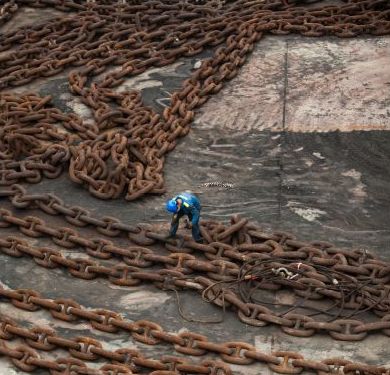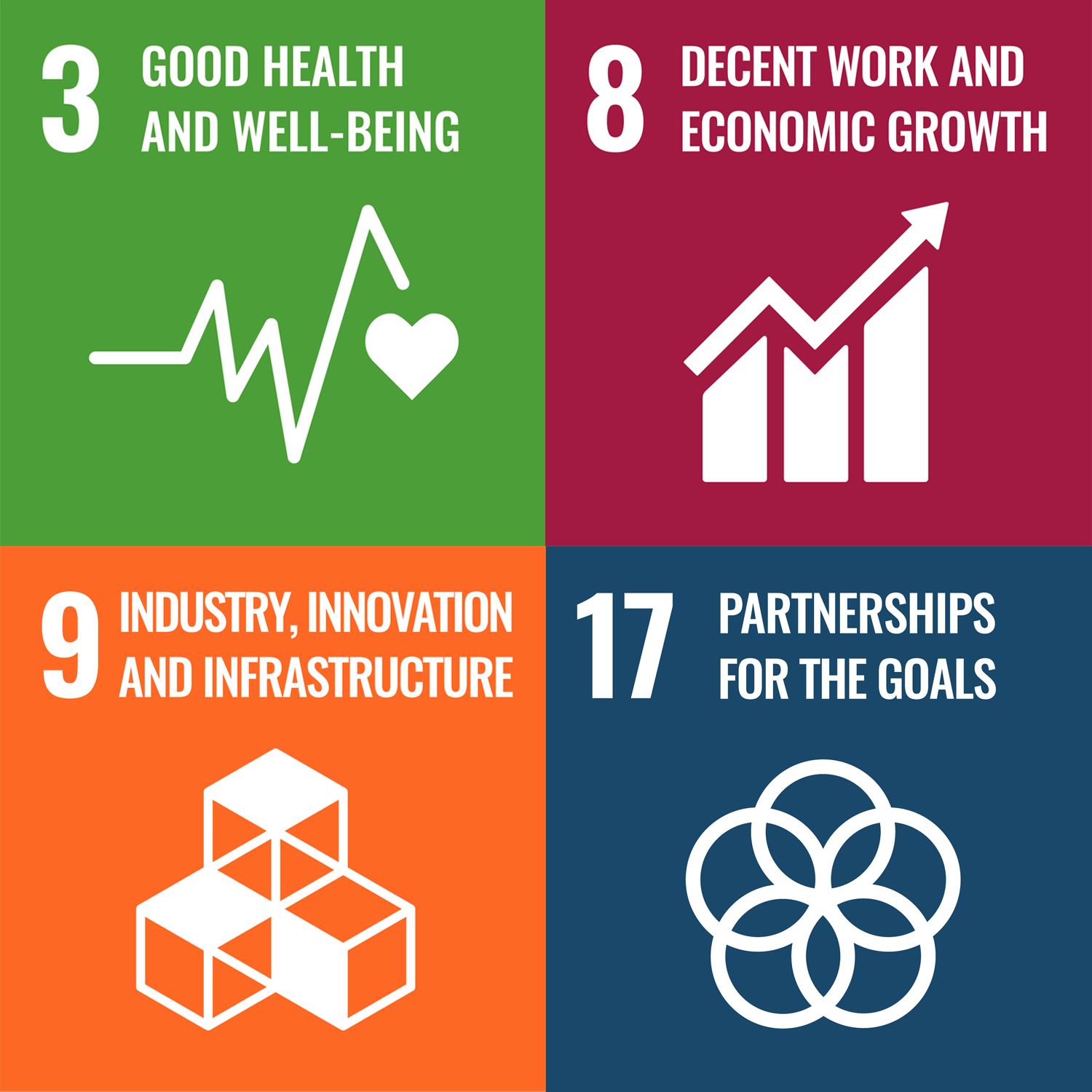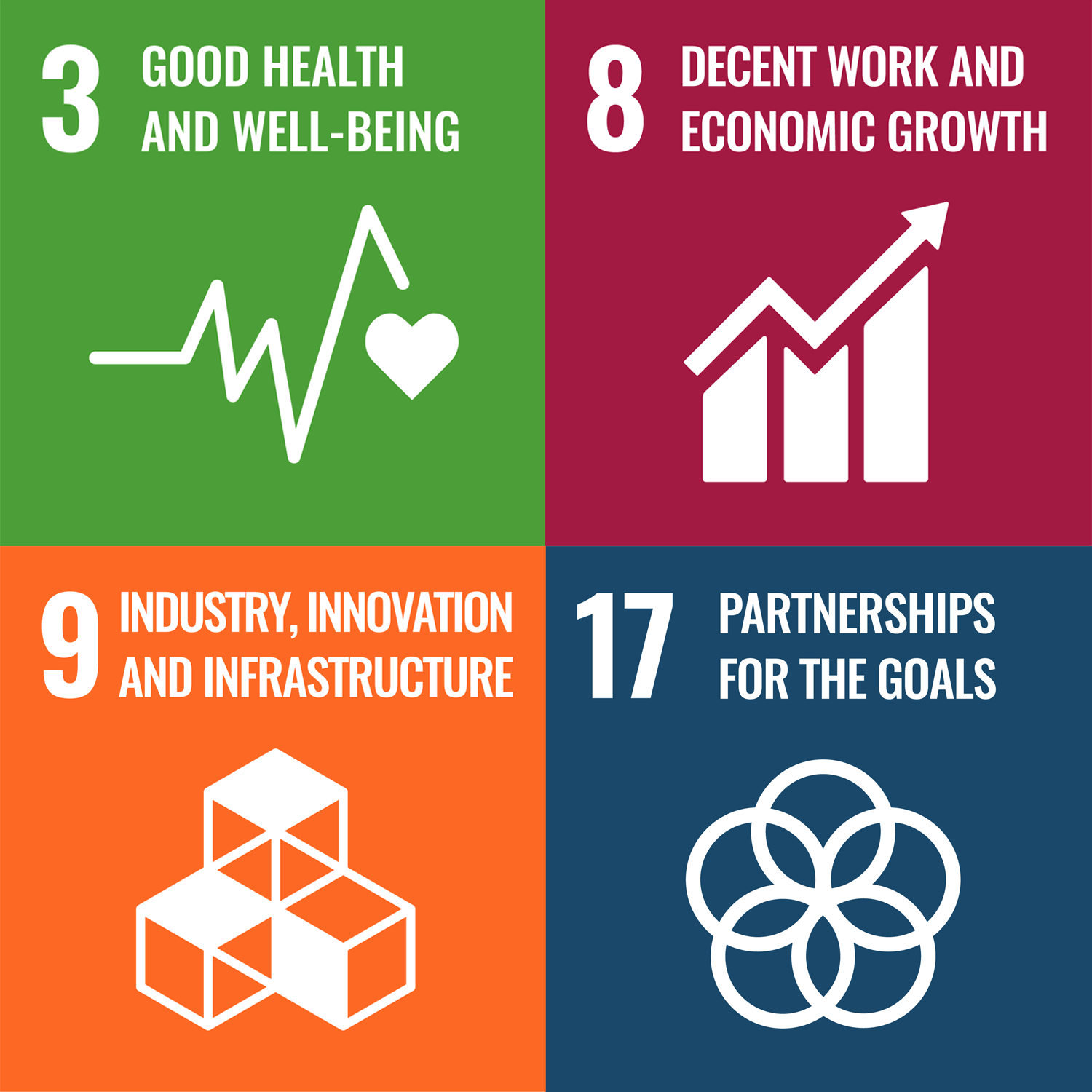Corporate Responsibility
The Concord platform delivers top commercial results, efficient access to the shipping markets, and comprehensive transparency with best-in-class operational, safety, and compliance practices. We are the exclusive commercial operator of a cooperative (of similarly classed vessels), known as a “pool”, on behalf of a variety of third-party ship owners from around the world. This diversity of backgrounds, perspectives, and philosophies, contribute to a more fulfilling and productive relationship and success in overcoming mutual challenges. We have the support of our partners as we have consistently demonstrated ethical, professional, and responsible conduct. Below describes our business, how we interact in the local and global community, and areas of particular importance and focus (United Nations Sustainable Development Goals).
What does Concord do?
Concord was founded in 2018 to offer commercial management services to shipowners worldwide who rely upon specialized third-party agents to manage the employment of their vessels. Our team has a long track record of creating and developing products that support the management of multiple shipowners’ vessels under a single, unique commercial entity, creating operational efficiencies and economies of scale. The Company consistently produces superior earnings for its customers while also providing full transparency of its commercial and financial operations – a unique feature among our peers. We abide by all international seaborne transportation regulations, laws adopted by global conventions, and the laws and regulations of the regions and countries that our managed fleet transit. Vessels under management are registered with members of the International Association of Classification Societies and are regularly inspected by third-party quality control experts. Before finalizing each voyage contract, the vessels are specifically screened and approved for service by our counterparties.


Who are our employees?
Our team includes professionals with decades of experience operating in the shipping markets. Employees come from the northeast region of the United States, southern Europe, and South Asia. The commercial team attended maritime colleges, obtained degrees in navigation or engineering, trained onboard seagoing vessels, and sailed internationally as officers on large merchant ships. Employees are also certified accountants, educated in the humanities, and trained in business administration. Additionally, our employees are working parents with school-aged children who are active in their local communities. All employees have corporate compliance training.
Who are our employees?
Our team includes professionals with decades of experience operating in the shipping markets. Employees come from the northeast region of the United States, southern Europe, and South Asia. The commercial team attended maritime colleges, obtained degrees in navigation or engineering, trained onboard seagoing vessels, and sailed internationally as officers on large merchant ships. Employees are also certified accountants, educated in the humanities, and trained in business administration. Additionally, our employees are working parents with school-aged children who are active in their local communities. All employees have corporate compliance training.

Where are we physically located?
Concord Maritime is headquartered in Stamford, Connecticut. The office is in the downtown section of the City, which is home to international, national, and regional businesses, a regional campus of the University of Connecticut, and many locally-run bars, restaurants, and shops. Stamford is Connecticut’s second most populous city with about 135,000 residents, more than half represent racial minority backgrounds. Housing in our immediate urban neighborhood includes a variety of luxury, middle-class, and affordable options.
We also have a satellite office in Watford, England, located in a primarily residential town within commuting distance of London.


How do we help support the local community?
We support our local community daily, enjoying takeaway lunches prepared at neighborhood establishments, many that are minority-owned and operated businesses. With a host of local culinary options, entertaining guests in our downtown community eliminates the need to travel to NYC or other affluent neighboring areas. We also sponsor organizations that directly support our less fortunate neighbors, such as our local food bank and Person-to-Person.
How do we help support the local community?
We support our local community daily, enjoying takeaway lunches prepared at neighborhood establishments, many that are minority-owned and operated businesses. With a host of local culinary options, entertaining guests in our downtown community eliminates the need to travel to NYC or other affluent neighboring areas. We also sponsor organizations that directly support our less fortunate neighbors, such as our local food bank and Person-to-Person.

Where do we do business?
Our managed vessels are traded all over the world, regularly performing voyages from the United States, the Gulf of Mexico to Europe, the Middle East to Southeast Asia, and the Far East. The vessels frequently load in the Baltic Sea, Black Sea, North Sea, Mediterranean, and trade inter-regional within Europe; transit international maritime passages such as the Suez Canal, Panama Canal, Straits of Hormuz, Singapore Straits, Bosphorus and Dardanelles, and the Danish Straits. Our counterparties include highly rated energy companies, state-owned entities, tried and trusted intermediaries. We manage payments through the largest U.S. headquartered banks. All of our transactions are screened for compliance with the United States Treasury Department’s Office of Foreign Assets Control policies. We carefully follow constructed procedures and processes that are audited periodically.


Do we interact with people in developing countries?
Concord operates an international business. While most of our contacts are in modern cities such as Athens, Dubai, Houston, London, New York, and Singapore, our managed vessels transit in and out of ports around the world, generating economic activity along the way. This includes utilizing local tug crews, agents, stevedores, inspectors, brokers, vendors, and the small businesses and communities that support them.
The majority of the crews onboard the vessels we manage are from developing countries, primarily, but not exclusively, Southeast Asia. Although life at sea as a merchant mariner brings many economic opportunities, it is not without challenges and hardship. Chief among these hardships is time away from home. Onerous quarantine measures, put in place to combat the global pandemic, have further exacerbated changing crews to a crisis level. To assist with relieving “stranded” crews, and taking replacement crews on board, we tailor voyages, despite voyage economics, to facilitate transfers. Additionally, we work with the Seamen’s Church Institute (SCI), as a financial sponsor, and an operational partner. SCI is committed to mariner wellness and pastoral care; maritime training and education; and advocacy for the men and women in their essential, but often overlooked, role in the transportation industry. In conjunction with the SCI, we have arranged for the voluntary vaccinations of the international crews onboard the vessels we manage, as they call U.S. ports where accessibility by medical personnel is achievable. We balance our commercial interests with the well-being of our counterparts.
Do we interact with people in developing countries?
Concord operates an international business. While most of our contacts are in modern cities such as Athens, Dubai, Houston, London, New York, and Singapore, our managed vessels transit in and out of ports around the world, generating economic activity along the way. This includes utilizing local tug crews, agents, stevedores, inspectors, brokers, vendors, and the small businesses and communities that support them.
The majority of the crews onboard the vessels we manage are from developing countries, primarily, but not exclusively, Southeast Asia. Although life at sea as a merchant mariner brings many economic opportunities, it is not without challenges and hardship. Chief among these hardships is time away from home. Onerous quarantine measures, put in place to combat the global pandemic, have further exacerbated changing crews to a crisis level. To assist with relieving “stranded” crews, and taking replacement crews on board, we tailor voyages, despite voyage economics, to facilitate transfers. Additionally, we work with the Seamen’s Church Institute (SCI), as a financial sponsor, and an operational partner. SCI is committed to mariner wellness and pastoral care; maritime training and education; and advocacy for the men and women in their essential, but often overlooked, role in the transportation industry. In conjunction with the SCI, we have arranged for the voluntary vaccinations of the international crews onboard the vessels we manage, as they call U.S. ports where accessibility by medical personnel is achievable. We balance our commercial interests with the well-being of our counterparts.

How do we plan to help reduce carbon emissions into the atmosphere?
Maritime transport is the engine of global trade – approximately 90% of traded goods are carried by sea and handled in ports worldwide, providing employment opportunities and economic development. The International Maritime Organization (IMO) has targeted the reduction of greenhouse gas (GHG) emissions by at least 40% by 2030, compared to 2008 levels. Concord’s business is incentivized to operate efficiently and to maximize each vessel’s utilization – the percentage of time that a vessel works. As environmental stewards, maintaining this strategy, applying further operational efficiencies, and developing technical innovations, will ensure that Concord meets and exceeds the IMO reduction targets, in some cases before these measures are officially adopted industrywide. Concord is creating awareness and leading discussions with our business partners that will enable us to achieve a reduction beyond what the IMO will regulate in the years to come.

